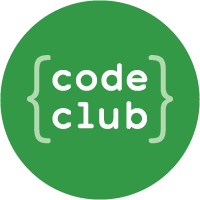Code Club
 | |
| Founded | 2012 |
|---|---|
| Founder |
|
| Location | |
Area served | United Kingdom |
| Website | codeclub |
Code Club is a voluntary initiative, founded in 2012. The initiative aims to provide opportunities for children aged 9 to 13 to develop coding skills through free after-school clubs. As of November 2015, over 3,800 schools and other public venues established a Code Club, regularly attended by an estimated 44,000 young people across the UK.[1] The organization also expanded internationally, and there are now over 13,000 Code Club operating worldwide.[2] Volunteer programmers and software developers give their time to run Code Club sessions, passing on their programming skills and mentoring the young students.[3][4] Children create their own computer games, animations and websites, learning how to use technology creatively.[5]
It has Scratch, HTML & CSS, Python and a variety of other coding languages. The initiative also provide free BBC Micro:bits to children above the age of 9.
History
Code Club is the brain child of Clare Sutcliffe[6] and Linda Sandvik,[7][8]
we share a belief that it is essential that children are introduced to coding at an early age and shown how much fun it can be.[9]
A viral video featuring Prince Andrew, Martha Lane Fox, Chad Hurley, Niklas Zennström, Brent Hoberman and Tim Berners-Lee was released to promote awareness of the project.[10]
On 3 November 2015, it was announced that Code Club had become "a wholly owned subsidiary of the Raspberry Pi Foundation."[11][12] On 16 March 2018, Clare Sutcliffe, then executive director at Raspberry Pi, announced leaving both Code Club and Raspberry Pi.
Technologies
The curriculum teaches children Scratch, HTML & CSS and Python. Students and teachers use the Trinket web browser application to write code.
References
- ^ "Raspberry Pi Foundation merges with Code Club (Wired UK)". Wired UK. Retrieved 20 April 2016.
- ^ "Code Club World – A worldwide network of coding clubs for children". www.codeclubworld.org. Retrieved 20 April 2016.
- ^ Robert Bisland (2013). "A day in the life of a Code Club volunteer". Sponsor's Blog. Postcode Anywhere. Archived from the original on 12 November 2014. Retrieved 12 November 2014.
- ^ Angela Davis (2013). "The region's techies help to influence a 'program' for change in the classroom". Sponsor's Blog. Postcode Anywhere. Archived from the original on 12 November 2014. Retrieved 12 November 2014.
- ^ Guy Mucklow (2013). "Kindergarten Code". Sponsor's Blog. Postcode Anywhere. Archived from the original on 12 November 2014. Retrieved 12 November 2014.
- ^ The Guardian. "New Year honours 2016: the full list". The Guardian. The Quardian. Retrieved 5 January 2016.
- ^ "The Founders Forum continues to generate innovative discussion". Wired. Conde Nast. Archived from the original on 8 August 2012. Retrieved 18 July 2012.
- ^ "Afterschool 'Code Clubs' planned to teach kids programming". Wired. Conde Nast. Retrieved 18 July 2012.
- ^ "Code Club About". Code Club. Retrieved 18 July 2012.
- ^ "Code and a have a go if you think you're good enough". Daily Mirror. Trinity Mirror. Retrieved 18 July 2012.
- ^ "Putting a Code Club in every community - Raspberry Pi". Raspberry Pi. Retrieved 20 April 2016.
- ^ Cellan-Jones, Rory (24 June 2019). "The Raspberry Pi goes Fourth". Retrieved 8 August 2019.
